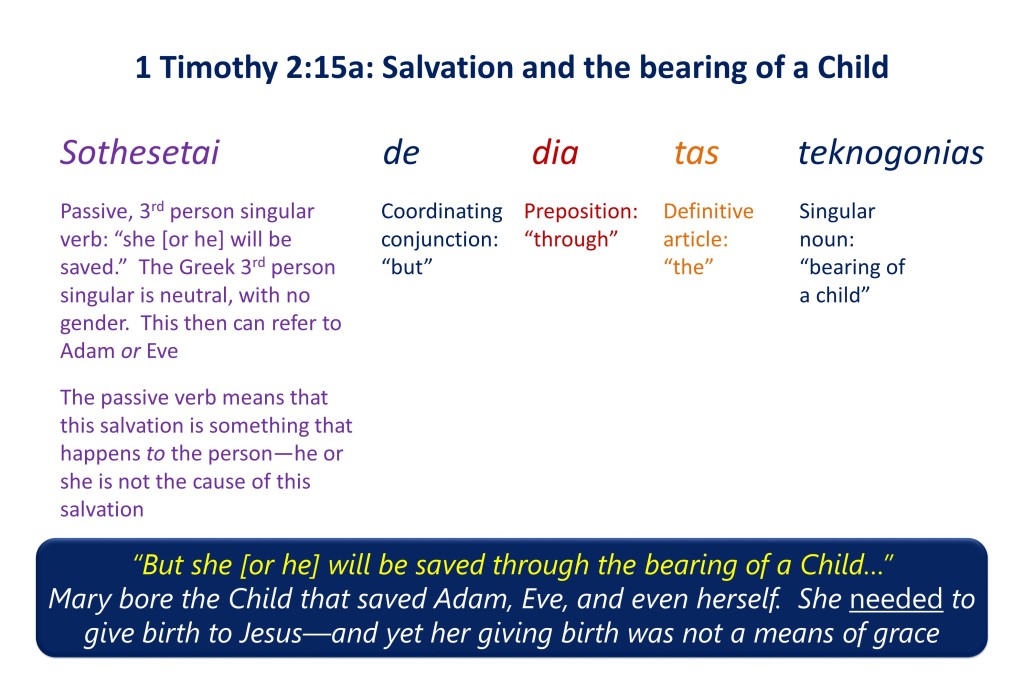 Having expressed the joy that the Corinthian Christians were able to give to Paul through Titus, Paul now tells the Corinthians what God has been doing in the churches of Macedonia and what God’s grace has been doing through them.
Having expressed the joy that the Corinthian Christians were able to give to Paul through Titus, Paul now tells the Corinthians what God has been doing in the churches of Macedonia and what God’s grace has been doing through them.
Paul and Timothy begin this section with, “We want you to know.” That was an expression to transition from one topic to another that often wasn’t directly related to the previous topic (see 1 Corinthians 12:3, 15:1; 2 Corinthians 1:8; Galatians 1:11).
Abundance, even in Poverty
Read 2 Corinthians 8:1-2
- What do we learn about the average income level of the Macedonian Christians?
- Despite their poverty, what brought about the way that they gave of their “wealth”?
“generosity”: Greek haplotes, this means “simplicity and sincerity” (not only here, but also in 2 Corinthians 9:11, 13). God’s grace brings about a “simplicity,” for it comes to someone as grace, as something underserved. When properly preached and taught, grace takes away the pretense of having to “fake” being good enough. And when the need for pretense and “faking it” are gone, someone can now be “simple” and “sincere.”
The Macedonians’ generosity was the result of their haplotes, their “simplicity.” The ESV is a case of the “tail wagging the dog” in its translation. They were generous—but that’s not what Paul was praising.
Read 2 Corinthians 8:3-5
- In what way did the Macedonians give? (last part of 2 Corinthians 8:3)
“means”: Greek, dunamis, power. The ESV’s “according to their means” and “beyond their means” make it seem like the Macedonians were giving money that they didn’t have. Paul wasn’t referring to their money but to “their abundance of joy” (vs. 2), in power they had and power they didn’t have!
- If the Macedonians gave from “their abundance of joy,” which was even beyond their power, who or what was the source of that “power”?
- How did the Macedonians express their desire to help the saints in Jerusalem?
“favor”: Greek, charis, meaning grace, goodwill, favor, even gift. The connection is that God’s grace was given to the Macedonians and they, in turn, want to give grace to others. The source of their grace is God’s grace. The Gospel is the motivation for giving to others, including money.
The pastor using God’s expectations for us (the Law) as motivation for giving may produce results, just as state law may “force” us to drive the speed limit. Yet, the Christian life isn’t sustained by what we do (the Law), but what God does for us and in us (the Gospel). This section in 2 Corinthians shows that.
Excursus: The Close Connection between God’s Grace in Salvation and What the Christian Does
Nothing that we do—in and of itself—can save us. That does not mean, however, that we aren’t involved in some way in how God save us. The most obvious truth of this is coming to Church. We actually have to do this—if we are to be where Jesus promises to be for us for our salvation.
Going to Church is not a means of grace. And, yet, it is necessary, so we can receive God’s means of grace for us. We now look at a few examples of God’s grace in salvation and what the Christian does.
1 Timothy 2:15:“Yet, she will be saved through childbearing” (ESV). The ESV makes it seem like that Eve will be saved “through childbearing.” But Paul was pointing to another birth.
James 2:24: “You see that a person is justified by works and not by faith alone” (ESV). We can understand this to mean that works and faith both save us. Now, works are necessary for the Christian; they, however, don’t save us as we usually understand salvation. But how can your pastor say this?
The Greek word for “justify” is dikiaoo, which has the idea of “being righteous.” We can see the different meanings of “justify” from the 4th Bishop of Rome, Clement, in a letter that he wrote to the Corinthians, in 96 AD.
We read in 1 Clement 30:3, “Let us be justified by works and not by words.” Clement wrote that to  encourage the Corinthians to be humble and not to boast in themselves. He encouraged each person to let his praise come from God and others, not himself. When Clement was telling the Corinthians not to boast, the question was not how someone became righteous, but how he lived out or showed that righteousness. Here, Clement used “justify” to mean “show to be righteous.”
encourage the Corinthians to be humble and not to boast in themselves. He encouraged each person to let his praise come from God and others, not himself. When Clement was telling the Corinthians not to boast, the question was not how someone became righteous, but how he lived out or showed that righteousness. Here, Clement used “justify” to mean “show to be righteous.”
Yet, Clement also wrote: “We, having been called through God’s will in Christ Jesus, are not justified through ourselves or through our own wisdom, understanding, piety, or works that we do in holiness of heart, but through faith” (1 Clement 32:4) Here, Clement was using “justify” to mean “declared and made righteous.”
Here, we see some of the meanings for dikiaoo. Those same two meanings also show up in the New Testament. In Romans, Paul used “justify” to mean to be “made and declared righteous.” James used “justify” to mean “show to be righteous.” Works show that God has declared and made us righteous.
Tobit 12:6-9: “Praise God… for what he has done for you…. For almsgiving saves from death, and it will purge away every sin” (ESV). This shows the necessity of good works. Yet, our “almsgiving,” in and of itself, does not save us from death and purge away our sin, anymore then Mary giving birth to Jesus, in and of itself, saved her. However, Jesus’ giving of Himself does save us from death and purges away every sin. Like Mary giving birth to Jesus, our “almsgiving” is intimately connected to Jesus’ “almsgiving” for us, and is a living out of that grace.
Although faith and works are two separate things, they are not disconnected from each other. Both are necessary. One is trusting and receiving Jesus’ righteousness for you (faith). The other is pointing to Jesus and living in, and living out, His righteousness toward others (works). Both can even “save” us when properly understood, when we see that our “showing-to-be-righteous” justification, works, is the living out of our “being made-righteous” justification.
We see this close connection in how the Macedonians gave in simplicity, causing them to have generous hearts, to help the saints in the mother Church at Jerusalem.
————
“saint”: This means “holy one.” The idea behind saint (and holy) is being set apart. For the Christian, God sets someone apart. The Greek-language Old Testament, the Septuagint, uses “saint” when referring to God’s chosen people, those who belong to Him.
This Grace of God at Corinth, and through the Corinthians
Read 2 Corinthians 8:6
- What’s the “grace” that Paul and Timothy urged Titus to complete in the Corinthians?
Read 2 Corinthians 8:7
- In what ways do the Corinthian Christians “excel”? (“abound” or “overflow” is a more accurate)
- How did the Macedonians get to be so “overflowing” in those areas?
“faith, discourse, and “knowledge”: These are gifts that the Holy Spirit gives: faith in 1 Corinthians 12:9; 13:2, 13; speech in 12:8, 14:9; and knowledge in 12:8; 13:2, 8; 14:6. So, again, at the root of the Corinthians’ living out of that grace is the grace of God given to them in Jesus and the Holy Spirit!
“earnestness”: The Corinthians’ earnestness points back to 2 Corinthians 7:11-12, which recounted their concern and zeal for Paul.
“excel in this act of grace also”: Here, the text says “overflow in this grace also.” Overflowing in this grace leads to the “spilling out” of this grace to others. It is the continuation of the grace of God—not a separate act.
Titus’ earlier report brought Paul joy because of the Corinthians’ repentance and remaining in the true Faith. Now, Paul “challenges” them to “overflow in this grace.” All Paul is doing is channeling where that grace from God—shown to them in Jesus, expressed through gifts of the Holy Spirit—is to be directed: to the suffering saints in Jerusalem.
This Grace is not a Command
Read 2 Corinthians 8:8
- Why is what Paul says not a command?
- Instead, what does Paul want the Corinthians to “prove”?
“Proof of Love”: The work of love is a hallmark of being in the Church (1 Thessalonians 1:3). Even more, for the Christian “what matters is faith working through love” (Galatians 5:6). Notice the close connection between faith and love? Love is also as a gift of the Spirit (Romans 5:5; 1 Corinthians 13).
For the Christian, love has an incarnational reality to it. Jesus is God’s love for us in the flesh (John 3:16), lived in in real and sacrificial ways. Here, in 2 Corinthians 8:8, 24, Paul writes about the Corinthians showing their love, not just as an abstract idea, but incarnationally, by participating in the collection for God’s holy people in Jerusalem.
Read 2 Corinthians 8:9
This is an abbreviated creed similar to, but also shorter than, Philippians 2:5-11.
- What is “the grace of our Lord Jesus Christ”?
- Jesus became poor, so who might become rich?
- At this point, the Corinthian Christians are rich because of, and in, Christ. When it came to helping the saints in Jerusalem, how does Paul not follow up this thought of being rich in Christ?
- How does Paul not saying what the stewardship side of us thinks he should say (because Jesus made you “rich,” here’s what you have to do) show that this is not a “command”?
Paul begins this verse with grace. He ends this verse opened ended as to how the Corinthians will channel the grace overflowing them in Christ Jesus to others. Paul refuses to take grace and use that as a springboard for the Law, such as, because Jesus gave, here’s what you have to do. He leaves grace as grace.




